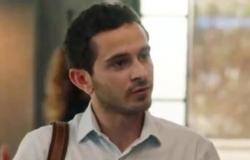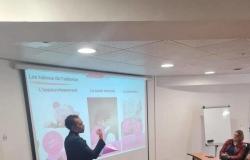European Prostate Day, held every year on September 20, is an opportunity to provide broad information on the pathologies of this organ, on the importance of diagnosis and on good practices to adopt to preserve the health of the perineum. Guillaume CARNAUX, a physiotherapist practicing in pelvic perineology, explains why establishing a relationship of trust with patients is essential in the context of these pathologies that affect the intimate.
Prostate pathologies
Prostate cancer is the most common cancer in men, with nearly 60,000 cases detected per year in France. [1] and an average age of around 50 at diagnosis. Its management and treatment have made enormous progress in recent years, leading to a marked improvement in prognosis. Surgical treatment, when considered, is generally carried out by laparoscopy. Patient support is essential throughout the care pathway, particularly in physiotherapy, in order to promote optimal recovery and a satisfactory quality of life.
Another pathology, quite common in men over 60, is benign prostatic hypertrophy (prostatic adenoma), the swelling of the organ being favored by advancing age. It can be treated by medication and/or surgery depending on the case.
Guillaume CARNAUX, physiotherapist specializing in pelvic perineology, works at the Roubaix hospital center and as a private practitioner in Tourcoing. He is also a teacher at a training institute in massage therapy in Lille, and president of the scientific council of the French Association for Pelvic Perineology Rehabilitation (AFRePP) [2]. “We have an important role of reassurance and support”he explains. The majority of his patients are men with prostate cancer, prostate adenoma or, more rarely, prostatitis.
Information and education
“First of all, the role of the physiotherapist is essential in terms of information and education of the patient. Then it is a question of helping him to obtain effective control of his perineum, both before and after the surgical intervention when it is envisagedhe specifies. The more informed and educated patients are, the more satisfactory their recovery is.”This support includes physical and respiratory preparation, the aim of which is to return home as quickly as possible after surgery.
All along the route, “A real team effort is established between the patient, the urology team and the physiotherapist: each has their share of responsibility for an optimal recovery”.
Generally, the physiotherapist sees the patient one month before the operation and then once a week so that the patient is as prepared as possible for the operation. “During the first session, I establish with the patient an assessment of his respiratory and physical capacities and I review all the essential information on the treatment, the possible complications and the good habits to adopt to avoid or reduce them”specifies Guillaume CARNAUX. In this context, establishing a relationship of trust is essential for the continuation of the support.
The main complications of surgical treatment for prostate cancer are urinary incontinence and erectile dysfunction. It is important to answer the patient’s questions or concerns and reassure him: “Today, surgery is minimally invasive, the consequences of treatments are better controlled, with less pain. In 6 months, 80% to 90% of patients operated on for prostate cancer have regained satisfactory continence.”explains the physiotherapist.
Guided rehabilitation
“I contact the patient two to three days after the probe is removed to check on them.”specifies Guillaume CARNAUX. The rehabilitation itself begins a month later. It is then a question of evaluating the complications and precisely adapting the sessions according to the patient’s situation. “In the event of incontinence, we will review together the advice given before the operation: drink enough water, go to the toilet regularly, prevent constipation, practice exercises to strengthen the perineum and synchronize the sphincters according to the effort provided.”. Sometimes, simple tips can help unblock a situation. For example, when urinary leaks occur when moving from a sitting to a standing position, it is often enough to remember to contract the perineum just before standing up. Learning to control your perineum involves achieving a good balance between contracting and relaxing the associated muscles. This requires regular training.
Support also includes encouragement to engage in regular physical activity, according to the patient’s abilities and preferences.
The question of privacy
During the first consultations, patients often feel embarrassed because prostate pathologies affect their privacy and their sexual life. They have had to undergo uncomfortable medical examinations (rectal examination, ultrasound-guided biopsy) and are apprehensive about rehabilitation. However, there are many means of assessment and rehabilitation that are not invasive. “I explain to them that a rectal examination is not always necessary for me to assess the contraction of the perineum. Similarly, the use of an intrarectal probe is not systematic.”notes Guillaume CARNAUX.
Similarly, questions relating to intimacy and sexual life are sometimes delicate to address with the patient. The physiotherapist can suggest a couple’s consultation so that dialogue is facilitated. Here again, it is a question of informing and responding to the fears expressed: for example, erectile dysfunction is variable and can be treated; or, the inability to ejaculate, caused by total prostatectomy, does not mean a lack of pleasure during sexual relations.
A Day to raise awareness among as many people as possible
European Prostate Day, on 20 September, is an opportunity to remind people of the importance of screening. Indeed, men can ask their doctor to prescribe a PSA (prostate-specific antigen) test from the age of 50, or 45 if there is a risk factor, such as a family history of hormone-dependent cancer: prostate, breast or uterus. “Let us also remember that there is a directory on the AFRePP website[3] physiotherapists practicing pelvic-perineal rehabilitation”specifies Guillaume CARNAUX: a valuable resource for patients who sometimes have difficulty finding a physiotherapist practicing in this field near them. This Day is also an opportunity to inform as many people as possible about prostate pathologies, about the progress made in treatment, and about recommendations for taking care of your perineum on a daily basis. [4].
Article written from an interview with Guillaume CARNAUX, September 4, 2024.

[1] National Cancer Institute. Panorama of cancers in France, 2023 edition. https://www.e-cancer.fr/Expertises-et-publications/Catalogue-des-publications/Panorama-des-cancers-en-France-edition-2023
Note: regarding the prostate, the latest available data dates from 2018.
[2] https://afrepp.org/
[3] https://afrepp.org/annuaire/
[4] Boost your health by taking care of your perineum, https://www.ordremk.fr/wp-content/uploads/2024/08/cnomk-depliant-perinee-bat-digital.pdf
Documents to download
See more





